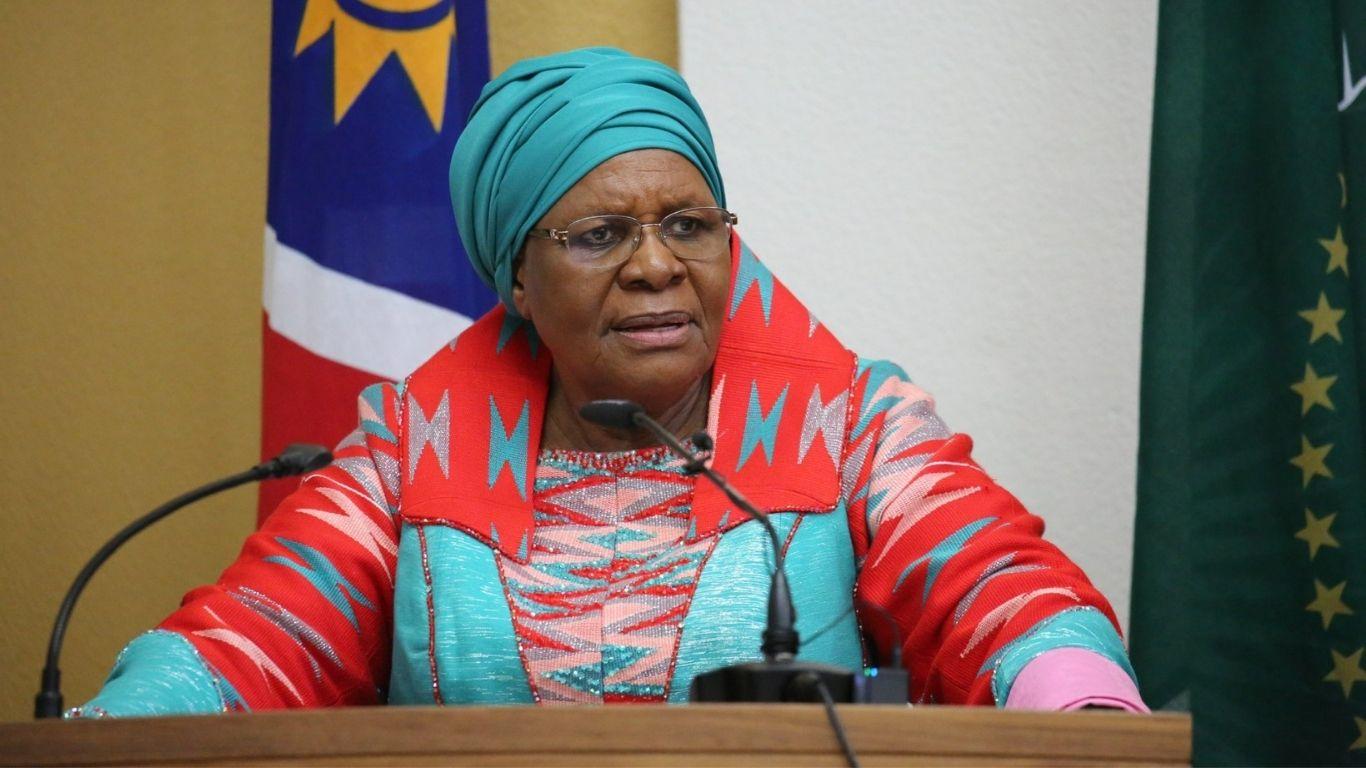Namibia is set to make history in African education policy following President Netumbo Nandi-Ndaitwah’s announcement that, starting with the 2026 academic year, the government will fully subsidize tertiary education at all public universities and vocational training centers.
This landmark policy, revealed during her inaugural State of the Nation Address, aims to eliminate tuition and registration fees, marking a significant shift in the nation’s approach to higher education and youth empowerment.
Introduction: A Transformative Educational Pledge
President Nandi-Ndaitwah’s declaration responds to persistent calls for accessible education and a strategic move to address Namibia’s pressing socio-economic challenges, notably high youth unemployment and poverty. With nearly 70% of the population under the age of 35, the policy is poised to reshape the prospects of a generation and position Namibia as a regional leader in educational reform.
Historical and Political Context
Namibia’s education system has undergone a profound transformation since its independence in 1990. The new constitution enshrined the right to education and abolished the racially segregated, apartheid-era funding system. The government initially focused on expanding access to primary and secondary education, introducing free schooling at these levels, and gradually extending support to higher education. Despite these advances, tertiary education remained financially out of reach for many, with the Namibia Students Financial Assistance Fund (NSFAF) providing loans and partial grants to bridge the gap.
The new policy builds on decades of reform, echoing the post-independence vision of “education for all” and aligning with Namibia’s long-term development goals, such as those outlined in Vision 2030 and the Education and Training Sector Improvement Programme (ETSIP). The move also resonates with continental trends, notably South Africa’s FeesMustFall movement, which galvanized debates on the affordability and accessibility of higher education across Africa.
Current Developments and Key Stakeholders
Policy Details:
The government will cover 100% of tuition and registration fees at all public universities and vocational training centers starting in 2026.
The initiative will be phased in, with families and students still responsible for accommodation and related living expenses in the interim.
The government has also unveiled a N$257 million (approx. US$13.7 million) fund to support youth-owned informal and micro businesses, alongside other youth empowerment initiatives.
Stakeholders:
Government: Led by President Nandi-Ndaitwah, the Ministry of Higher Education and the Ministry of Finance will oversee funding and implementation.
Educational Institutions: Two public universities (the University of Namibia and Namibia University of Science and Technology) and seven government-run vocational training centers will be directly affected.
Students and Families: Particularly those from low-income backgrounds, who have long advocated for fee-free tertiary education.
Student Organizations: The Namibia National Students Organisation (NANSO) has welcomed the announcement, calling it the fulfillment of a generational demand.
Private Sector and Donors: May be called upon to complement government funding and support ancillary costs.
Expert Commentary and Analysis
Political observers and education specialists have lauded the announcement as a bold step towards social equity and economic transformation. According to the Namibian newspaper, the policy could end the protracted struggle for free education, which has seen student protests and repeated appeals to the government over the years. NANSO’s leadership emphasized that this move is a victory for youth advocacy, while cautioning that implementation and sustainability will be critical.
However, experts also warn of potential fiscal and operational challenges. Previous analyses have highlighted the significant financial burden such policies can place on national budgets, potentially necessitating increased taxation or reallocation of resources from other sectors. The experience of neighboring South Africa, where fee-free education for the majority remains a work in progress, underscores the complexities of translating policy into practice, especially in the face of economic constraints and competing priorities.
Implications for Governance, Democracy, and Regional Stability
Governance:
The policy is a testament to responsive governance, signaling the administration’s willingness to address public demands and invest in human capital. Effective implementation will require robust administrative systems, transparent funding mechanisms, and ongoing stakeholder engagement to ensure quality and sustainability.
Democracy:
By expanding access to higher education, the government reinforces the democratic ideals of equity and opportunity. This move could strengthen social cohesion and trust in public institutions, particularly among the youth, who have often felt marginalized by economic barriers.
Regional Stability:
Namibia’s initiative may inspire similar reforms across the continent, contributing to regional dialogue on education, youth empowerment, and inclusive development. Successful implementation could enhance Namibia’s standing as a model for progressive governance in Africa, while any missteps could serve as cautionary tales for other nations contemplating similar policies.
Possible Outcomes and Evolving Scenarios
Positive Trajectory: If well-managed, the policy could lead to increased tertiary enrollment, higher graduation rates, and a more skilled workforce, ultimately driving economic growth and reducing inequality.
Fiscal Strain: Without adequate funding and cost controls, the initiative could strain public finances, potentially leading to cuts in other sectors or the need for external support.
Quality Concerns: Rapid expansion of access may challenge existing infrastructure and academic standards, necessitating parallel investments in facilities, faculty, and quality assurance.
Regional Influence: Namibia could become a benchmark for education reform in Africa, encouraging other governments to pursue similar paths while learning from Namibia’s experiences.
Conclusion
President Netumbo Nandi-Ndaitwah’s pledge to fully subsidize tertiary education marks a watershed moment in Namibia’s post-independence history and African education policy. While the move promises to unlock opportunities for thousands of young Namibians, its success will hinge on prudent fiscal management, sustained political will, and a commitment to educational quality. As Namibia embarks on this ambitious journey, the eyes of the continent—and the world—will be watching closely to see whether the promise of free higher education can be transformed into lasting progress and prosperity.
“I am pleased to announce that from the next Academic Year, commencing 2026, tertiary education will become 100 percent subsidized by the Government.” President Netumbo Nandi-Ndaitwah. Read full statement: https://t.co/cVzYoRIaWcpic.twitter.com/L2m0uvdKLQ
— Namibian Presidency (@NamPresidency) April 24, 2025
Leave a comment
Your email address will not be published. Required fields are marked *





